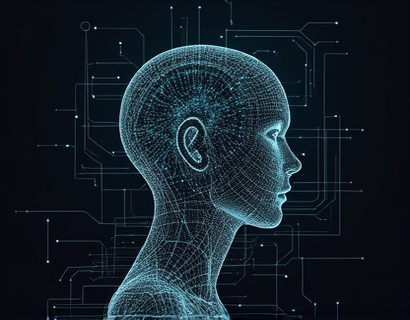AI-Powered Legal Automation: Elevating Efficiency and Insights for Legal Experts
In the rapidly evolving landscape of legal services, the integration of artificial intelligence (AI) has emerged as a transformative force. AI-powered legal automation is redefining the way legal professionals approach their work, offering unprecedented efficiency, accuracy, and insights. This innovative solution automates critical tasks such as document analysis, case research, and compliance checks, enabling legal experts to save time, reduce costs, and deliver exceptional client outcomes. By harnessing the power of AI, legal practitioners can streamline key processes, allowing them to focus on high-value activities that drive business growth and client satisfaction.
Enhancing Document Analysis
One of the most significant benefits of AI-powered legal automation is its ability to revolutionize document analysis. Traditionally, legal professionals spend a substantial amount of time reviewing and analyzing large volumes of documents, a task that is both time-consuming and prone to human error. AI algorithms, however, can process and analyze documents at a scale and speed unattainable by humans. These algorithms use natural language processing (NLP) and machine learning to extract relevant information, identify key terms, and highlight pertinent data points. This not only accelerates the review process but also ensures a higher level of accuracy and consistency.
For instance, AI can automatically categorize contracts, identify breach of terms, and flag potential risks. This capability is particularly valuable in areas such as contract management, where the ability to quickly assess and compare numerous documents can be crucial. By automating these tasks, legal professionals can devote more time to strategic decision-making and client interaction, rather than getting bogged down in manual document review.
Optimizing Case Research
Case research is another area where AI-powered legal automation significantly enhances efficiency. Legal research involves sifting through vast amounts of legal literature, case law, and statutes to find relevant precedents and arguments. AI tools can rapidly scan through extensive databases, identifying and summarizing pertinent cases and legal principles. This not only saves time but also ensures that legal professionals have access to the most up-to-date and relevant information.
AI-driven research tools can also provide insights into case trends and outcomes, helping legal experts to build stronger arguments and predict judicial decisions more accurately. By automating the initial stages of case research, these tools enable lawyers to focus on higher-level analysis and strategy, ultimately leading to more effective advocacy and better client outcomes.
Ensuring Compliance and Risk Management
Compliance with legal and regulatory requirements is a critical aspect of legal practice, yet it is often a source of significant stress and potential liability. AI-powered legal automation can greatly alleviate these concerns by automating compliance checks and monitoring regulatory changes. AI algorithms can continuously scan for updates in legislation, industry standards, and court rulings, ensuring that legal practices remain compliant at all times.
These tools can also perform internal audits, identifying potential compliance gaps and recommending corrective actions. This proactive approach to compliance not only reduces the risk of penalties and reputational damage but also builds trust with clients who value a robust compliance framework. By integrating AI into compliance processes, legal professionals can allocate resources more effectively, focusing on strategic initiatives rather than routine compliance tasks.
Streamlining Workflow and Collaboration
The integration of AI in legal workflows extends beyond individual tasks to enhance overall workflow management and collaboration. AI-powered platforms can automate the assignment and tracking of tasks, ensuring that projects progress smoothly and deadlines are met. These platforms can also facilitate better collaboration among team members by providing real-time access to documents, insights, and project statuses.
For example, AI can suggest optimal workflows based on historical data and current project requirements, optimizing resource allocation and reducing bottlenecks. Additionally, AI-driven communication tools can help legal teams stay aligned and informed, reducing misunderstandings and improving overall productivity. This streamlined approach not only enhances efficiency but also fosters a more collaborative and dynamic work environment.
Enhancing Client Outcomes
The ultimate goal of any legal practice is to deliver exceptional outcomes for clients. AI-powered legal automation plays a pivotal role in achieving this objective by improving the quality and speed of legal services. With AI handling time-consuming and error-prone tasks, legal professionals can focus on providing high-quality advice, crafting precise legal documents, and advocating effectively on behalf of their clients.
Moreover, AI can provide clients with real-time updates and insights into their cases, enhancing transparency and trust. By leveraging AI to deliver more accurate and timely results, legal practices can differentiate themselves in a competitive market, attracting and retaining clients who value innovation and excellence.
Challenges and Considerations
While the benefits of AI-powered legal automation are clear, it is essential to acknowledge the challenges and considerations involved in its implementation. One of the primary concerns is the initial investment required to adopt these technologies. However, the long-term cost savings and efficiency gains often justify the upfront costs. Legal practices should conduct a thorough cost-benefit analysis to understand the financial implications and potential return on investment.
Another consideration is the need for training and upskilling. Legal professionals must be equipped with the knowledge and skills to effectively use AI tools. Providing comprehensive training programs and support can help ensure a smooth transition and maximize the benefits of these technologies. Additionally, it is crucial to address ethical and privacy concerns, ensuring that AI systems are designed and used in a manner that respects client confidentiality and adheres to ethical standards.
Future Trends and Innovations
The field of AI-powered legal automation is rapidly evolving, with ongoing advancements promising even greater capabilities in the future. One area of focus is the integration of AI with other emerging technologies such as blockchain and the Internet of Things (IoT). These integrations can further enhance data security, transparency, and efficiency in legal processes.
Moreover, the development of more sophisticated NLP and machine learning algorithms will continue to improve the accuracy and depth of AI-driven insights. As AI systems become more adept at understanding complex legal contexts, their ability to assist legal professionals in strategic decision-making will significantly enhance. The future of legal automation holds the potential to not only streamline existing processes but also to redefine the very nature of legal practice.
Conclusion
AI-powered legal automation represents a paradigm shift in the legal industry, offering legal professionals the tools to enhance efficiency, accuracy, and client satisfaction. By automating routine tasks and providing valuable insights, these technologies enable legal experts to focus on high-value work, driving business growth and innovation. As the legal landscape continues to evolve, embracing AI-powered solutions will be essential for staying competitive and delivering exceptional service in an increasingly digital world.










































